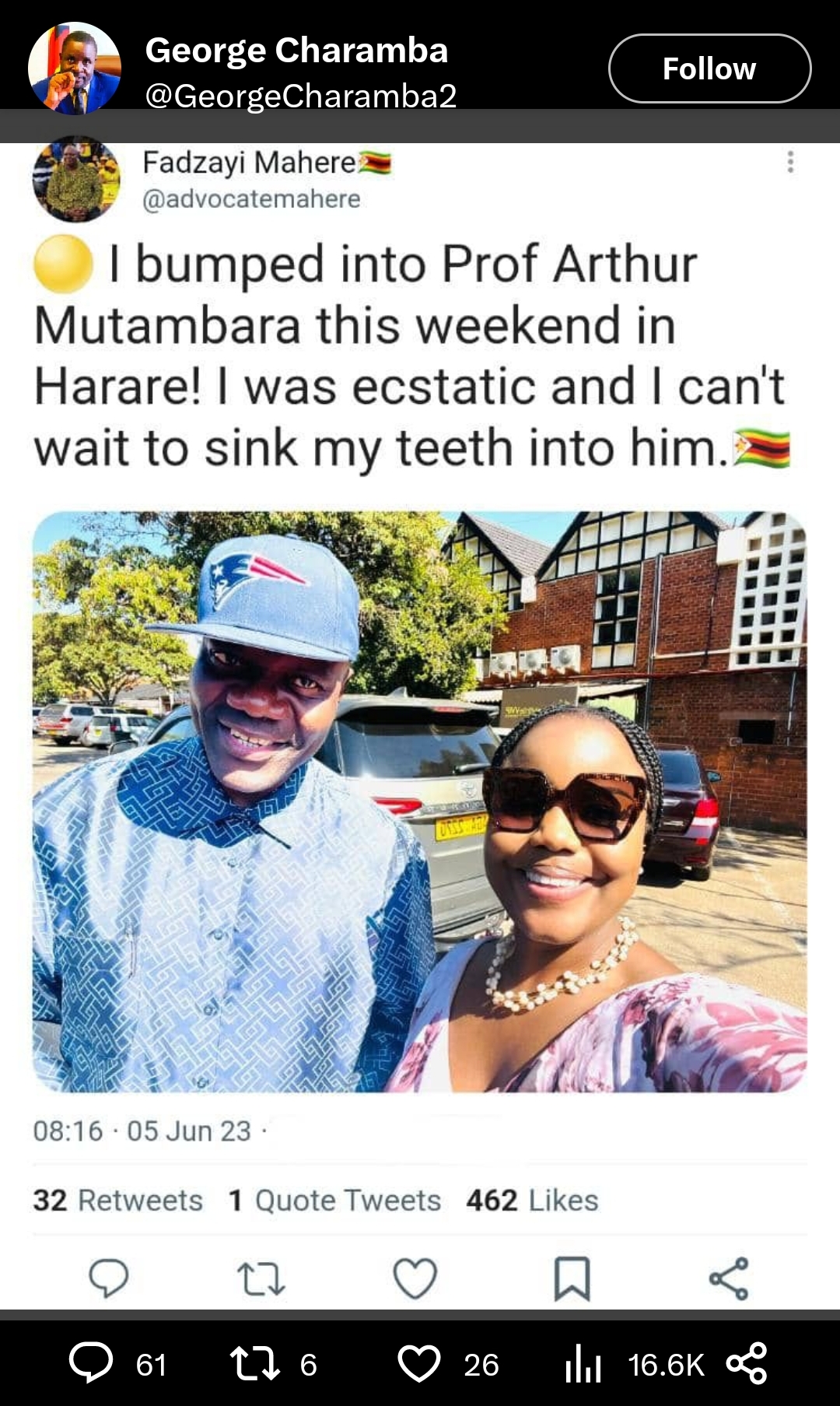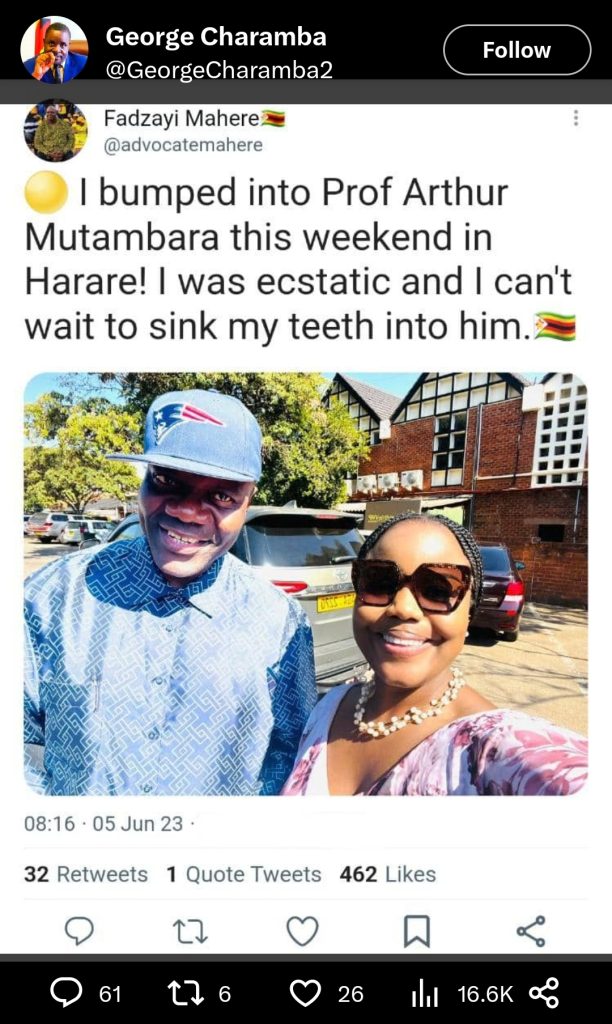Published
1 year agoon
By
Peter Smith
In an era of rapidly spreading information, the dangers of fake news have become increasingly apparent. The recent incident involving a misleading tweet shared by George Charamba, the Deputy Chief Secretary-Presidential Communications in Zimbabwe, underscores the risks and consequences associated with the dissemination of false or manipulated information. The tweet, which misrepresented an encounter between Fadzayi Mahere, a prominent Zimbabwean lawyer and politician, and Prof Arthur Mutambara, a renowned political figure, serves as a stark reminder of the harm that fake news can inflict on public discourse and the potential damage it can cause to individuals and political processes.

The Misleading Tweet:
The tweet shared by George Charamba, supposedly a screenshot of a tweet by Fadzayi Mahere, falsely portrayed an unexpected encounter between Mahere and Prof Arthur Mutambara in Harare. While the original tweet by Mahere remains unknown, it is clear that the screenshot shared by Charamba was fabricated, misrepresenting the nature and context of the encounter. This deliberate manipulation of information not only misled the public but also ignited unnecessary speculation and created a false narrative around the upcoming 2023 Zimbabwe Elections.
The Impact of Fake News:
The incident serves as a stark reminder of the dangers posed by fake news and the detrimental impact it can have on public perception, political processes, and the overall social fabric of a nation. In this case, the misleading tweet created a false narrative that fueled speculation and uncertainty, distorting the public’s understanding of the political landscape in Zimbabwe. Such misinformation can undermine trust in institutions, breed division, and impede the democratic process.
Combatting the Spread of Fake News:
The incident involving the misleading tweet emphasizes the urgent need for individuals, media organizations, and social media platforms to be vigilant in verifying information before sharing or promoting it. Responsible journalism and fact-checking are crucial in countering the spread of misinformation and ensuring the public has access to accurate and reliable information. Additionally, individuals must exercise caution and critical thinking when consuming news, being mindful of the potential for manipulation and the consequences of sharing unverified information.
Promoting Media Literacy and Digital Literacy:
Addressing the issue of fake news requires a multi-faceted approach that includes promoting media literacy and digital literacy among the public. By equipping individuals with the skills to discern credible sources, verify information, and identify signs of misinformation, society can build a resilient defence against the spread of fake news. Educational initiatives, awareness campaigns, and the inclusion of media literacy in formal education curricula are crucial steps towards empowering individuals to navigate the complex information landscape.
Conclusion:
The incident surrounding the misleading tweet shared by George Charamba serves as a cautionary tale, highlighting the dangers and implications of fake news. It underscores the need for increased vigilance, responsible journalism, and individual critical thinking in the face of misinformation. As technology advances and information continues to flow at unprecedented speeds, society must remain committed to combating fake news, preserving the integrity of public discourse, and safeguarding the democratic processes that underpin our societies. Only through collective efforts can we mitigate the risks posed by fake news and foster an informed and engaged citizenry.
Scandal and Critique: President Ramaphosa Faces Rising Opposition
Workplace Challenge Programme Boosts SA Business Performance: Productivity SA Acting CEO
A New Era in Coordinated Climate Action Dawns as President Ramaphosa Assents the Climate Change Bill
Climate Commission to Hand Over South Africa’s First Ever State of Climate Action Report to Government
From Chalk to Consultancy: Tichaona Mupasiri Revolutionizes Education Solutions
Ambassador Linda Thomas-Greenfield Honors Nelson Mandela International Day




Warning: Undefined variable $user_ID in /home/iniafrica/public_html/wp-content/themes/zox-news/comments.php on line 49
You must be logged in to post a comment Login